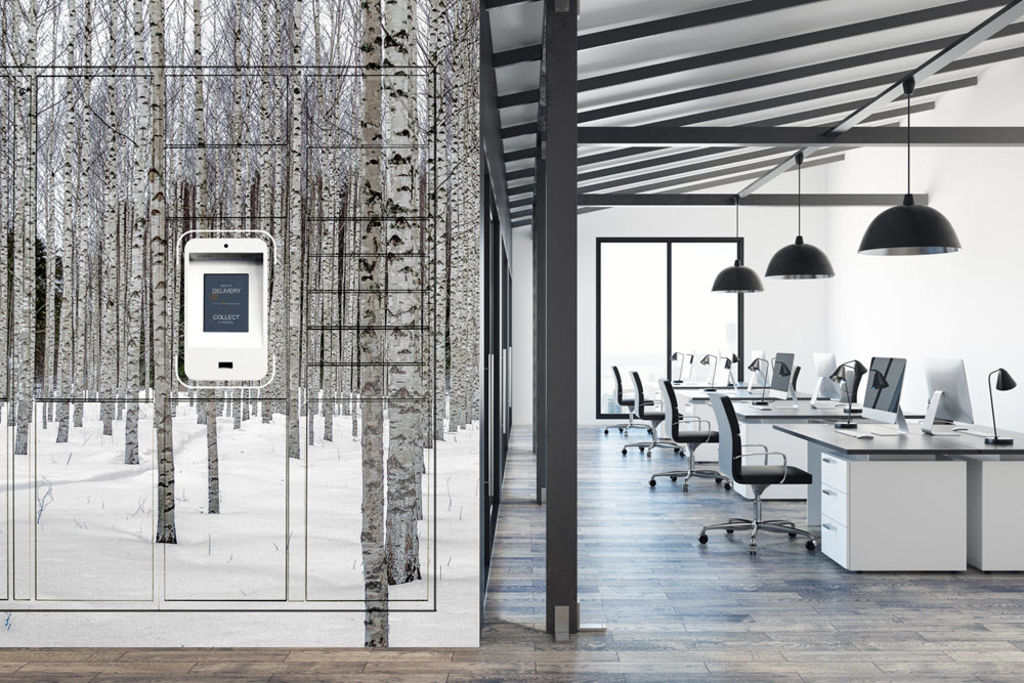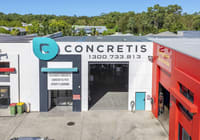
Groundfloor app could solve the problem of missing that parcel delivery
A Melbourne-based property technology company wants to get rid of those annoying “sorry we missed you” delivery cards for good.
Groundfloor, a parcel delivery service aimed at apartment buildings, offices, student accommodation and other large buildings, provides lockers with a digital interface that connects with an app.
A courier can place the parcel in the secure locker and the recipient is then sent a message in real time with a code to open the locker whenever they want.
The company’s co-founders spent years researching and designing Groundfloor to combat the main problem with parcel delivery.
“A lot of the discussion around supply chain logistics is around the last kilometre – the last piece of the journey to the home or the building, but we realised that the part that was really missing and creating that negative customer experience wasn’t the last kilometre, it was the last few steps when the courier pulls up to the property,” Groundfloor co-founder Lauren Melton said.
While there were similar offerings around the world and in Australia, Ms Melton said the company was the only one to offer its services to all courier companies, including Australia Post.
“We wanted the functionality, sizing and locker design to be custom-tailored for our market, with a furniture aesthetic to fit beautifully in a lobby or building, and it’s the first system in Australia that’s courier-inclusive,” Ms Melton said.
Groundfloor doesn’t require courier companies to sign up to the service, with the couriers instead having to download the app the first time they deliver to a building that has the lockers.
The company’s technology is based on the concept that a parcel should always be able to be delivered to the ground floor of any building, saving time and money for everyone involved, Ms Melton said.
“Whether it’s a commercial building in the middle of the CBD, an apartment building or a student residence, that’s the most efficient way for a delivery to be made,” she said. “We’re taking what is sometimes an 8-9 minute process and putting it all on the single level on the ground floor.”
The lockers can be retrofitted to existing buildings, or the company can work with developers to incorporate them into a build.
“It’s much smoother sailing to get into newer projects, and we have had a lot of traction there and enthusiasm,” Ms Melton said. “We are very actively cultivating the new market, but the system can easily be put into any existing building.”
The lockers are modular and come in four different sizes, aiming to cater to all types of parcels. A building can install just a few lockers or enough to handle hundreds of parcels, and they can be installed outside the building or indoors.
For commercial building operators, the Groundfloor lockers could make employees’ and residents’ lives easier, and could save time and money, Ms Melton said.
“Instead of being at work stressing about the delivery or going to the post office after work or on a Saturday, they welcome parcels to your building as a service to you,” she said. “It’s a pain point that commercial operators can take away for employees and tenants in a building.
“It’s life changing to know that when you order something it’s going to show up somewhere convenient for you, on your terms.”
In the longer term, the company also has a vision of reducing city congestion and by streamlining the delivery process.
Ms Melton said the company had a few hundred users at the moment, including a luxury apartment building in East Melbourne, an A-grade CBD commercial tower and Swinburne University’s student residence, which houses 600 students.
Swinburne University’ student residence administration coordinator John Glynn said the system had made life easier for students and staff.
“Not only are the systems a secure way to store parcels, they also help to declutter our office space,” he said.
“Our admin staff don’t have to worry about checking IDs or managing signatures for parcel collection because the delivery notification and collection is sent to the resident’s nominated phone number.
“We don’t operate a 24-hour reception, so it’s easier for our residents to collect their parcels when it’s convenient for them, instead of making time to see us.”













